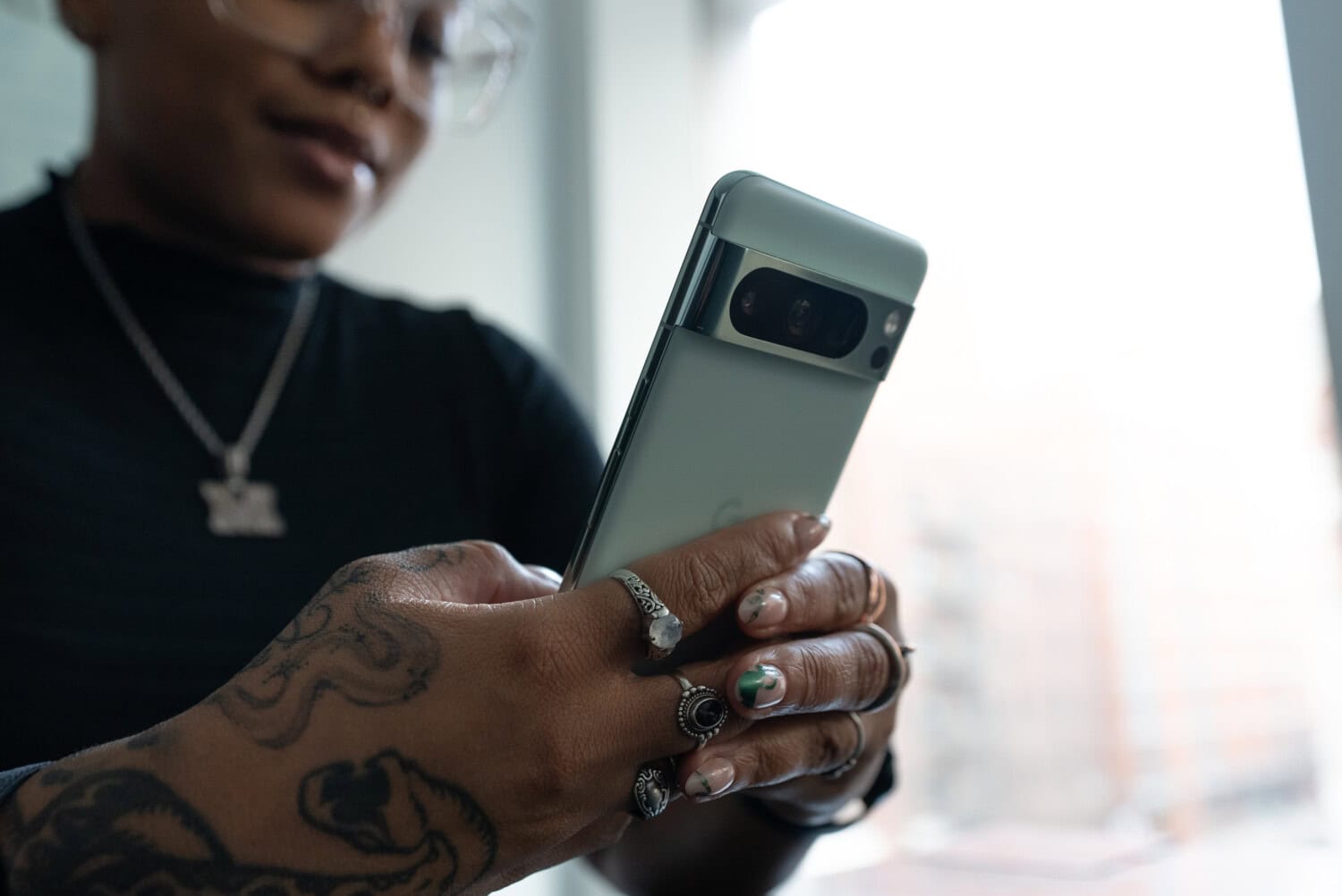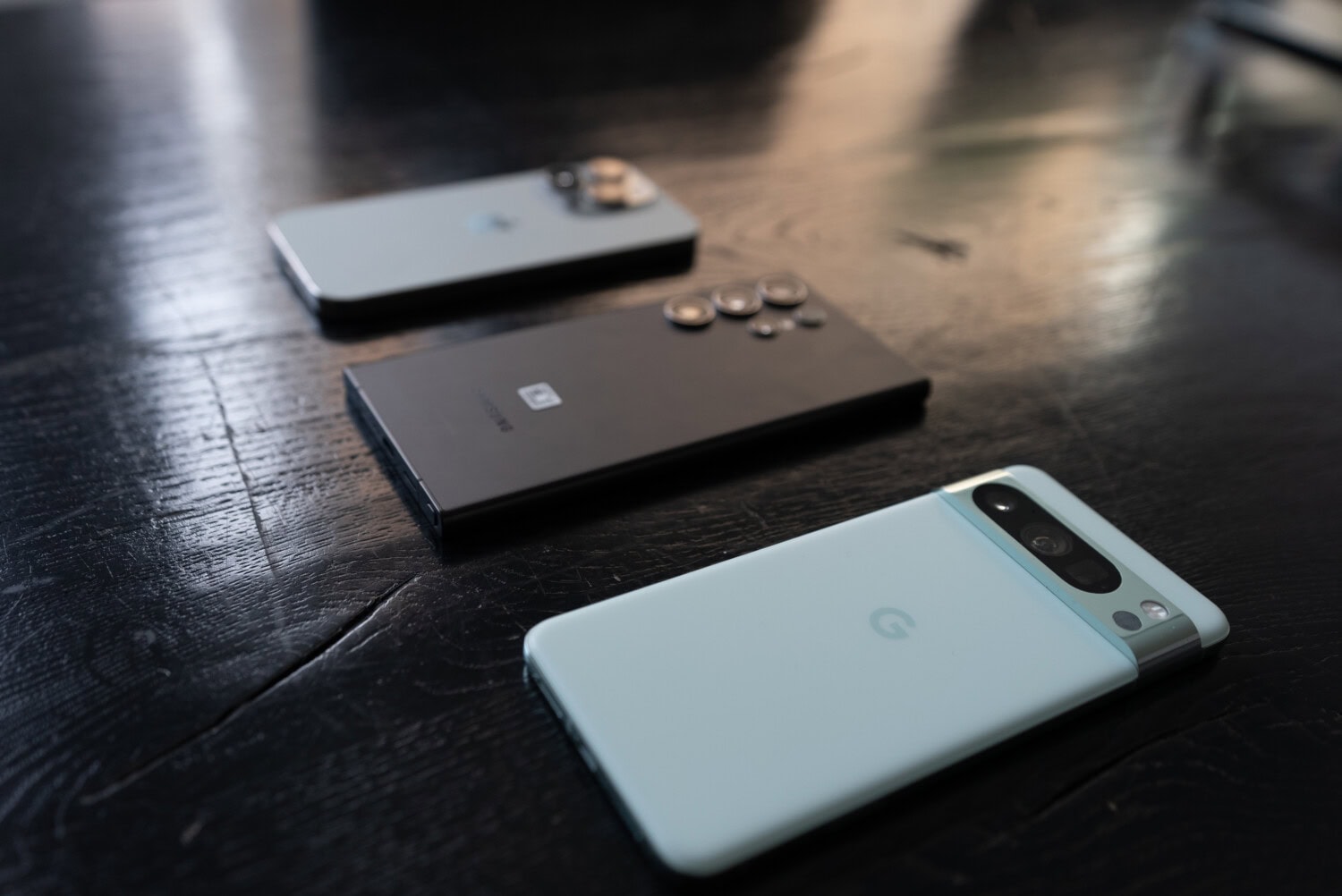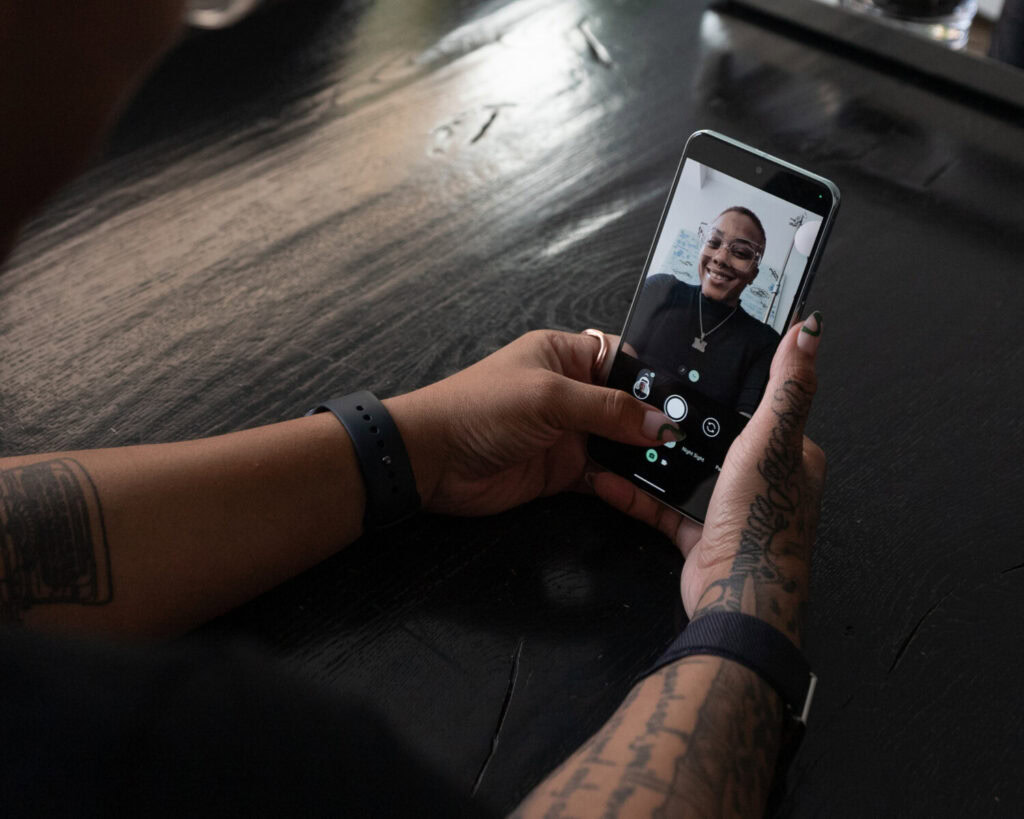In this latest edition of Tech Talk Reviews, Boardroom reviews Google’s Pixel 8 Pro smartphone and details how artificial intelligence powers the new device.
This story is part of Tech Talk Reviews, a series highlighting tech reporter and digital creator Michelai Graham’s experience testing new tech gadgets, emerging platforms, apps, games, and more. Find more reviews here.
Since the first version of the Pixel smartphone was introduced in October 2016, Google has released more than 20 iterations of the device.
The most recent class of Pixel devices has been dubbed the most powerful and best smartphones the Big Tech giant has released since entering the market.
In this latest edition of Tech Talk Reviews, I break down everything you need to know about the Pixel 8 Pro and why I’ll continue to use it on a daily basis.
The Specifics
Google unveiled the Pixel 8 and Pixel 8 Pro in October 2023. The new mobile devices have updated cameras and sensors and were built with AI at the center. For the purposes of this review, I’m going to focus on the specifics of the Pixel 8 Pro. The smartphone is available in obsidian (black), porcelain (cream), and bay (blue) and comes with 128 GB, 256 GB, 512 GB, and 1 TB storage options. In January, Google announced a new mint color with 128 GB of storage. The outer design of the Pixel 8 Pro is finished with an aluminum frame and matte black glass.
The Pixel 8 Pro is powered by the Google Tensor G3, a custom-designed chip equipped with Google AI tech that makes the smartphone faster, smarter, more efficient, and capable of fueling better photo and video features. The device also has a Titan M2 security coprocessor chip that Google developed exclusively for Pixel smartphones. The back of the Pixel 8 Pro has a new temperature sensor that lets users scan an object to get its temperature. Think about how handy this can be in the kitchen.

The Pixel 8 Pro’s 6.7-inch screen is protected by scratch-resistant glass and features Pixel’s brightest display yet. The device can shoot video in 4K, and some of the camera features include portrait mode, motion mode, panorama, super zoom, and more. The smartphone is equipped with three microphones and has spatial audio. There is a USB-C connector, and the device can hold a 24+ hour battery charge. Google AI upgraded the Pixel 8 Pro’s camera system with some generative AI-powered editing tools, including Magic Editor and Magic Eraser, which allows users to reposition and resize photo subjects or reduce noises in videos.
The Pixel 8 Pro starts at $999.
Michelai’s Review
At one point, I was using an iPhone 14 Pro, a Samsung Galaxy S24 Ultra, and a Pixel 8 Pro, and let me tell you, I gravitated toward the Pixel 8 Pro more than I expected. But, I had a very different experience from when I first set up my S24U for review. The Android interface wasn’t nostalgic, but the Pixel 8 Pro’s home screen was a lot more intuitive and easy to learn compared to the S24U.

Google sent me the Pixel 8 Pro in the mint color to review, which I’ve been toying with for about four months now. The look and feel of the device are some of my favorite things about it. I love the color so much that I decided to get a classic clear case so it can show.
As expected, all of the native Google apps, like Gmail, YouTube, and Chrome, were pre-downloaded, which I didn’t hate. Once I logged into all of my Google accounts, I liked how seamlessly they integrated into the device.
As for getting a handle on the smartphone, I had to get used to the power and volume control buttons being on the right side of the device since those buttons are on the left side of the iPhone. Everything else about it came pretty easy to me. I loved that I could choose an overall color theme for app icons and buttons. I didn’t realize how much I disliked all the different colors on my iPhone home screen until Google gave me control of that on my Pixel.
Hands down, my favorite feature is the camera. I can’t believe I’m saying this, but Pixel devices have the best cameras on the market. The photos and videos look so natural and high quality. There are so many modes to shoot content in, and I was impressed by all of them, especially capturing photos in low light. The quality never diminished. I’ve converted to primarily using my Pixel 8 Pro camera when capturing life moments or recording digital content for work.

Now, let’s get into the smartphone’s AI features. To be honest, I wasn’t running to use Google’s generative AI chatbot, Gemini, before I got the Pixel 8 Pro, but there is something about the platform natively living on my phone that prompts me to use it more. Recently, Gemini showed up in a message thread, and at first, I was freaked out, but then I realized I’m more inclined to chat back and forth with an AI chatbot via text messages instead of opening up a separate app since texting feels more normal to me.
Also, I noticed that Gemini in-text gave me different replies than Gemini in-app. I’m not sure if that was intentional, but I definitely got more information to my inquiries when I communicated with Gemini via text messages. I even leaned on Gemini to help me come up with my cool gamer girl tag. Stay tuned to find out what it is!
Magic Eraser and Magic Editor are cool and handy features, but I’m personally never looking to alter my images in that way, so I’ll likely use those AI features less than Gemini.
I don’t have much criticism about the Pixel 8 Pro, so much so that I’ve decided to keep it activated and use it as a second phone to house all of my digital content and mobile games. I’ve also been pivoting and using it more to manage all of my social media accounts. The only negative thing I have to say about the device is that I wish more people I know had Pixel smartphones. I like it that much. It’s clear Google is on a positive road to mastering the software behind all of its Pixel offerings, from camera features to Gemini and beyond.
I’m not going to start a campaign or anything because I’m still very much so Team iPhone, but I wouldn’t hate it if my circle decided to also grab a Pixel 8 Pro and have two phones like me.